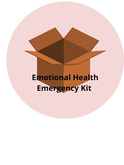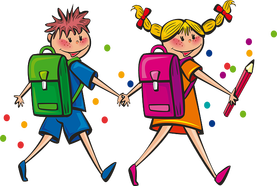|
Sometimes we end up incredibly frustrated, because nothing seems to be working. We just can't reach a goal. We know what we want - but it seems so far away. Certainly that does not feel like peace.
So what can we do? Here is an excellent blog post written by my friend, Gillian Whitney. Goals are ideals - meant to empower us, not to cause us to think we are inadequate. Check out this post. https://lech-lecha1000.blogspot.com/2020/04/next-year-in-jerusalem-passover-2020.html
0 Comments
Emotions literally power our lives. An emotion actually points us in a direction. What we feel matters. As we combine that feeling with a thought, our brain automatically makes decisions about what is important (according to that combination of feeling and thought). When we understand our emotions, we learn how to “take them apart.” We learn that we can examine our feelings to tell us what we need, and then we can examine what we are thinking. As we do this, we can consciously choose the direction we go, and the decisions we make about how to get there. Example Suppose I am mad because my neighbor plays his car stereo during the days - and the music is so loud that I can hear the bass sound booming inside my house with the windows closed. That is a problem. To label my feeling: I am feeling “frustrated.” I have been over there twice now to ask him to turn the music down, but the very next day my neighbor forgets. I know that what I’d like is for him to offer me consideration and respectfully lower the volume of his music. So how does this solve the problem? The answer: It does not solve the problem. All it does is help me see where I am in the situation. I know my feeling, my thought, and my need. Once I can see clearly, then I can look around me for solutions. As I examine possible courses of action, I identify possible choices that look like this: #1: I call the police, and tell them of the issue, and have them take care of it. #2: I march over there and yell at my neighbor, and tell him that next time I will definitely be calling the police. #3: I go over to my neighbor’s house, and say, “I’m feeling very frustrated, because I’d like you to turn your music down so that I don’t hear it in my house. Is there anything I can do that would encourage you to remember to use a much lower volume? I’d really like us to be able to be good neighbors, and I hope that we could cooperate with each other when we need things like this. I don’t really want to call the police because I’d rather resolve the issue peacefully.” So - looking at those choices, I can choose the direction I want to go. Just like the arrows above, when I begin my course of action, my focus, aim and result will move towards some kind of target. Choosing our emotions makes sure that we are in control of where that arrow goes. How did this help? When I choose the option to take, I can choose it knowing that I am not reacting, I am acting. I am consciously choosing my response to a problem. I do not have to be uptight or upset or yell or scream. I do not need to tear down my neighbor’s reputation, nor become mean or violent. I am simply solving a problem in the best way that I can do so. Each one of those options will aim the problem in a different direction. But I am choosing my response. And that is powerful, believe it or not. Injustice happens all the time. Life is simply never going to be fair. As my husband says often, “Sometimes people are just annoying. Sometimes they are mean. And sometimes they are stupid. But I don’t have to be mean, annoying or stupid.” Typically, someone would react in one of three ways:
We are not victims. This whole thing may sound really trite. Shouldn’t we just do what needs to be done to get the neighbor to keep their music down? My answer to that is that it matters. By choosing our emotions, we can acknowledge our own responsibility for how we act, and what we spend our time thinking about. Being in control of our feelings is empowering, even if a situation seems difficult at times. The truth is, we are not victims unless we choose to be.
Our emotions give us direction to be able to choose the path we take in solving problems.  True principle: Giving from the heart is what creates peace. Today I taught a class for teenagers in our area. Our class is called “Emotional Bank Account,” and we talk about tools we can use to help us be emotionally strong and healthy. It has been a fun class to teach, and the students are awesome. We now meet online, because we can’t meet in person due to COVID-19 social distancing restrictions. The class topic of emotional health has become “alive” in the minds of the teenagers now, because they can see how important their emotions are, and they want to know how to help themselves in this time of upheaval and uncertainty. They can see that emotions do make a difference. We watched a video today -- a segment that the news show “60 Minutes” did about Sir Nicholas Winton several years ago. Nicholas Winton was an ordinary person, until he made a decision. He went on a skiing vacation to Czechoslovakia shortly before WWII began, and realized that Germany was “eliminating” Jews. Nicholas had no expertise in what to do, but he knew that he had to do something. And he did. He was responsible for getting almost 700 Jewish children out of Czechoslovakia to safety in England. Yet no one knew this story for years and years, and he did not talk about it. Why could he do this? He simply did his best, because his heart told him that it was important. Yes, there was certainly fear. But he took action because his heart told him it was the right thing to do. The video is incredibly moving, and you can watch it here. One of my students, Evelyn Casperson, wrote the following short essay -- her reflections of what a hero means to her. I love this essay, and to me, it represents the hope of the future. Our young people growing up right now are capable, ready, and willing to do great things for the right reasons. We are in good hands. I have many heroes in my life. To narrow it down to one or two would be nearly impossible. However, the thing that stands out most heroic to me in a person is they’re willing to help others, knowing that they might never get anything in return. Not only that, but they’re willing to sacrifice everything for someone who may or may not deserve it.
I doubt I could ever be brave enough to be a true hero and make that sacrifice. I can only hope I am worthy of the amazing heroes I have in my life. Though they deserve much more, in the eyes of a true hero, a good deed is a reward itself. That is the belief that makes heroes heroes. --------Evelyn Casperson, 2020. Last year the power went out in our house at night. Although I did find two flashlights, of course neither one of them had working batteries. I knew we had spare batteries, but in the dark, we couldn’t find them. I finally found a small candle, but since that wasn’t very bright, we ended up going to bed early because we had no light. So the next day I decided I was going to find all our flashlights and batteries and put them in one box, and label it. That way I would always be prepared. This morning I noticed that box on the shelf in our storage room. It gave me a good feeling. I was ready and prepared for emergencies. As I was moving out of the storage room, suddenly I had a thought. Do I have a box full of “emotional emergency supplies” for those times in life when I just can’t “see” my way out of confusion and turmoil? I really need a box like that right now.  Our world reality: COVID-19. Scary. Frightening. Unknown. Uncertain. Unprecedented. Isolating. Draining. Where are my “COVID-19 flashlights,” and do they have working batteries? What kind of emotional energy supplies do I need to have in this box? Emotions can be compared to this analogy of a flashlight. Principle: Emotions power our lives. Our emotions make us “real”. We “light up” with emotion. Our emotions allow us to connect meaningfully with others, and our emotions allow us to find a way to deal with life and its ups and downs.  We have many kinds of emotions, and our emotions vary in intensity, depending on the situation. There are emotions we like -- which we call positive ones. There are emotions we don’t like because they don’t feel as good -- and we tend to call them negative ones. The truth is, though, that just like a battery - we need both our positive and negative emotions. Come join with us as we discuss principles of emotions. See why learning to understand your emotions will create the space in your life for peace. Find out how it is possible to heal “negative” emotions with compassion and honesty, without trauma or drama. Learn how to use your emotions to increase happiness in your life. Learn how to communicate honestly - with compassion, understanding emotions - to build harmonious relationships. Learn how emotions affect your body - and how you can improve your health and vitality. Truly, emotions do power our lives. We offer a free webinar held each Monday at noon. You may attend live - and participate in the discussion - and/or will receive an email with the link to the recording. Each week you will be sent an invitation to join, along with a description of what we will be talking about. One of the things that happens in overwhelm is that we can’t think clearly! So as we begin our discussion of OVERWHELM, let’s be wise, and define exactly what the word overwhelm means. Let’s turn to the dictionary. According to several dictionaries, the word overwhelm came to us from as far back as the 14th Century. It came from the 1400s and is “Middle English” in origin. The word meant, “to turn upside down, or to overthrow.” The imagery is of a boat that is washed over or overturned by a big wave.
I’ve often felt like that. I”m completely thrown off balance by huge waves of “stuff” that I need to do, or find myself swamped with feelings that have completely submerged me into despair, frustration, panic, or fear. This picture represents how I feel in those moments. (Click "read more" to finish the blog post.) When I ask people if they've been overwhelmed, , they look at me and give me this look that says, “Are you kidding? Who hasn’t been overwhelmed?” Sometimes someone will say, “Do you mean this week? If it’s Monday morning, maybe I haven’t been overwhelmed yet.”  This cat makes me laugh. This is how I feel when I just don't want to deal with things any more. I'm completely overwhelmed, and just want to quit. I’ve been thinking about this for a long time. The thing is, it’s possible to completely break free of overwhelm. It is possible to live in a state of relaxation and peace. That sounds kind of Utopian, but it isn’t, really. All it takes is a willingness to learn about your emotions, and then it takes what I call a “paradigm shift” to believe that peace can really be possible in any situation. So I’m going to begin a series of blog posts about the concept of “OVERWHELM.” We’ll discuss what it is, why it impacts us so much, and what we can do to delete overwhelm and feel peace. We can do all this even if our circumstances do not change. (The truth is, though, that when we are in a place of peace, our circumstances do change, often dramatically, for the better.) So now that we know where we’re going (we’re going to feel peace), how do we get there? Stay tuned for Part 2. Before we can really talk about overwhelm, we need to figure out what happens to us IN overwhelm. How would you say that overwhelm impacts you? (If overwhelm did not bother us, it wouldn't be a problem, right? So what happens when you feel overwhelmed?
 School is starting this week in our community. For a month now, parents have been shopping back-to-school sales, buying our children their school supplies and clothes to wear. It’s been a busy time of preparing. Now parents can breathe a sigh of relief, right? Whew. The children are in school. Unfortunately, that relief isn’t as long-lasting as we’d like. Now we start worrying about a host of other issues. “What if my child becomes the target of a bully?” “What if my child can’t keep up with the others in the class? How will that make him/her feel?” “Will my child like school? Will he/she have friends? (Good friends?)” “Can my child handle the emotional stress that will come with growing up?” “Will my child talk to my about his/her concerns, or will they withdraw, and isolate themselves?” Etc. In short, we worry about our children’s emotions. We worry about how they will deal with the emotional strain, stress and tension that we know is out there in their world. My question, though, is this: What have you taught your children about emotions? Do your children know what emotions are, why they have them, and what to do with them?
Most parents have not consciously taught their children about these things, because, quite frankly, most parents do not really understand emotions themselves. We’ve prepared our children well for the physical aspect of going back to school. We must prepare them emotionally too. If you worry about that, I invite you to take the course, “What to Teach Your Children About Emotions.” Children who are prepared to understand their emotions will not fall apart the minute stress comes. They will know how to make decisions based upon their family values and standards, and not be swayed by emotional appeals or manipulation. You can also contact me for a coaching session on this topic. Our kids definitely need this knowledge. |




